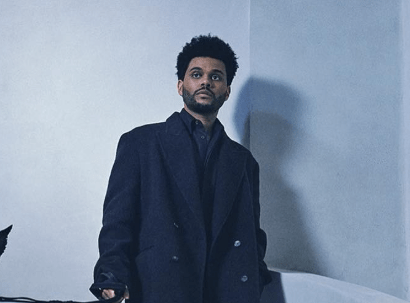Like the evocative tunes that initially brought him fame, The Weeknd’s financial career has been well planned. He is one of the most financially successful music artists of his time, with an estimated net worth of $600 million as of 2025. His careful approach to maintaining control, optimizing long-term profits, and redefining how musicians view wealth is what sets his riches apart, not just the music or streaming figures.

Abel Tesfaye gained popularity without the help of traditional record labels after he emerged anonymously in 2010 with eerie, genre-bending songs posted to YouTube. His initial mixtapes, Echoes of Silence, Thursday, and House of Balloons, expanded the emotional spectrum of R&B and attracted early co-signs from Drake and other musicians. His persona was shaped by his obscurity and profoundly reflective lyrics, which set him apart from the glitzy pop scene of the time.
The Weeknd – Biography and Financial Profile
| Category | Details |
|---|---|
| Full Name | Abel Makkonen Tesfaye |
| Stage Name | The Weeknd |
| Date of Birth | February 16, 1990 |
| Nationality | Canadian |
| Occupation | Singer, Songwriter, Record Producer, Actor |
| Estimated Net Worth | $600 million (as of 2025) |
| Primary Income Sources | Touring, Streaming, Licensing, Catalog Value, Real Estate, Partnerships |
| Breakthrough Album | Beauty Behind the Madness (2015) |
| Record-Holding Single | Blinding Lights – Billboard chart longevity + streaming milestones |
| Signature Deal | $1B catalog-backed financing strategy with Lyric Capital (2025) |
| Major Properties | $70M Bel Air estate, Coral Gables mansion, Hidden Hills estate (sold) |
| Reference |
Beauty Behind the Madness, released in 2015, marked his commercial breakthrough and gave rise to singles like “The Hills” and “Can’t Feel My Face.” He went from a melancholy online cult figure to a legitimate pop icon thanks to the record, which marked a cultural turning point. His subsequent project, Starboy, carried on that trend within a year, garnering a Grammy and opening up new avenues for fashion, brand partnerships, and music licensing. He demonstrated his extraordinary versatility by dominating streaming charts, creating capsule collections with Puma, and providing the voiceover for well-known animated films.
After Hours, which was released in 2020, was one of his most influential albums. It was a cinematic statement rather than merely an album. With billions of listens, the hit song Blinding Lights broke Billboard longevity records and became an anthem. The tune became a common sound in TV ads, viral TikTok trends, and at-home exercises throughout the pandemic. The consistent, high-volume royalties that currently serve as the cornerstone of The Weeknd’s financial independence were made possible in large part by its success.
Another milestone was reached in 2021 when his Super Bowl LV halftime show was presented as an art piece in addition to a concert. In order to maintain creative control, he reportedly spent $7 million of his own funds on the set, which is noteworthy. That choice represented a larger philosophy that has influenced his wealth: make significant investments, hold onto your rights, and let the profits speak for themselves.
There were rumors in August 2025 that The Weeknd was considering a novel plan to raise $1 billion by putting his music library as collateral. The Weeknd’s strategy focuses on keeping control of their archives, in contrast to colleagues like Bruce Springsteen and Justin Bieber, who sold them outright for large sums of money. The agreement, which was arranged by Lyric Capital Group, would combine $250 million in junior debt, $500 million in senior debt, and an additional $250 million in equity. Future revenue streams from hits like Starboy, Blinding Lights, and Save Your Tears would be used to pay back the debt.
This action, which was influenced by David Bowie’s “Bowie Bonds” of the 1990s, may represent a far better model for musicians looking to raise money without sacrificing their history. The Weeknd’s decision to rely on his catalog’s longevity rather than give up rights shows both business maturity and faith in the everlasting nature of his music.
In addition to royalties and touring, real estate has been crucial to diversifying his holdings. He paid $18 million in 2017 for a 13,000-square-foot mansion in Hidden Hills, which he eventually sold to Madonna for $20 million in 2021. That property was more than just a house; it was a recording studio and an asset with increasing value, complete with a 1,200-square-foot guest house and a specialized music studio.
He spent $21 million on a penthouse in Los Angeles in 2019 that offered expansive views of the Beverly Hills Country Club. In 2023, it sold for $19 million, despite being advertised for $22.5 million at first. Prior to that, he paid $60,000 a month to rent a triplex penthouse in Manhattan, indicating early on that his preference for seclusion and style would be compatible with high-value, high-leverage enterprises.
The $70 million Bel Air estate he purchased in 2021 through an off-market transaction, however, is his most prominent property. Situated on 1.6 excellent acres, the 33,000-square-foot home has two pools, a gym, a sports court, an indoor theater, and a recording studio. It is a tangible embodiment of his size—roomy, private, and incredibly resilient as a luxury investment.
He made even further expansions in October 2025 when he bought a beachfront home in Coral Gables, Florida. The mansion, which is valued at around $55 million, gives his holdings another degree of geographic diversification and may provide tax advantages and long-term growth as Florida continues to draw wealthy people.
His influence has expanded beyond amusement in recent years. The Weeknd has consistently woven purpose into his financial story, from charitable contributions during COVID-19 to support for refugee organizations and racial fairness activism. Once based on secrecy, his public persona has evolved into one of transparency, showcasing a man who is not only pursuing charts but also questioning established economic systems.
His ability to exploit his songs without sacrificing ownership is what makes his current financial situation so unique. The Weeknd has chosen a more nuanced, forward-looking approach at a time when catalog purchases are being promoted as the fastest way to get rich. He is exhibiting a very effective use of capital by including debt finance and equity into his plan, which gives him access to liquidity while maintaining complete control.
